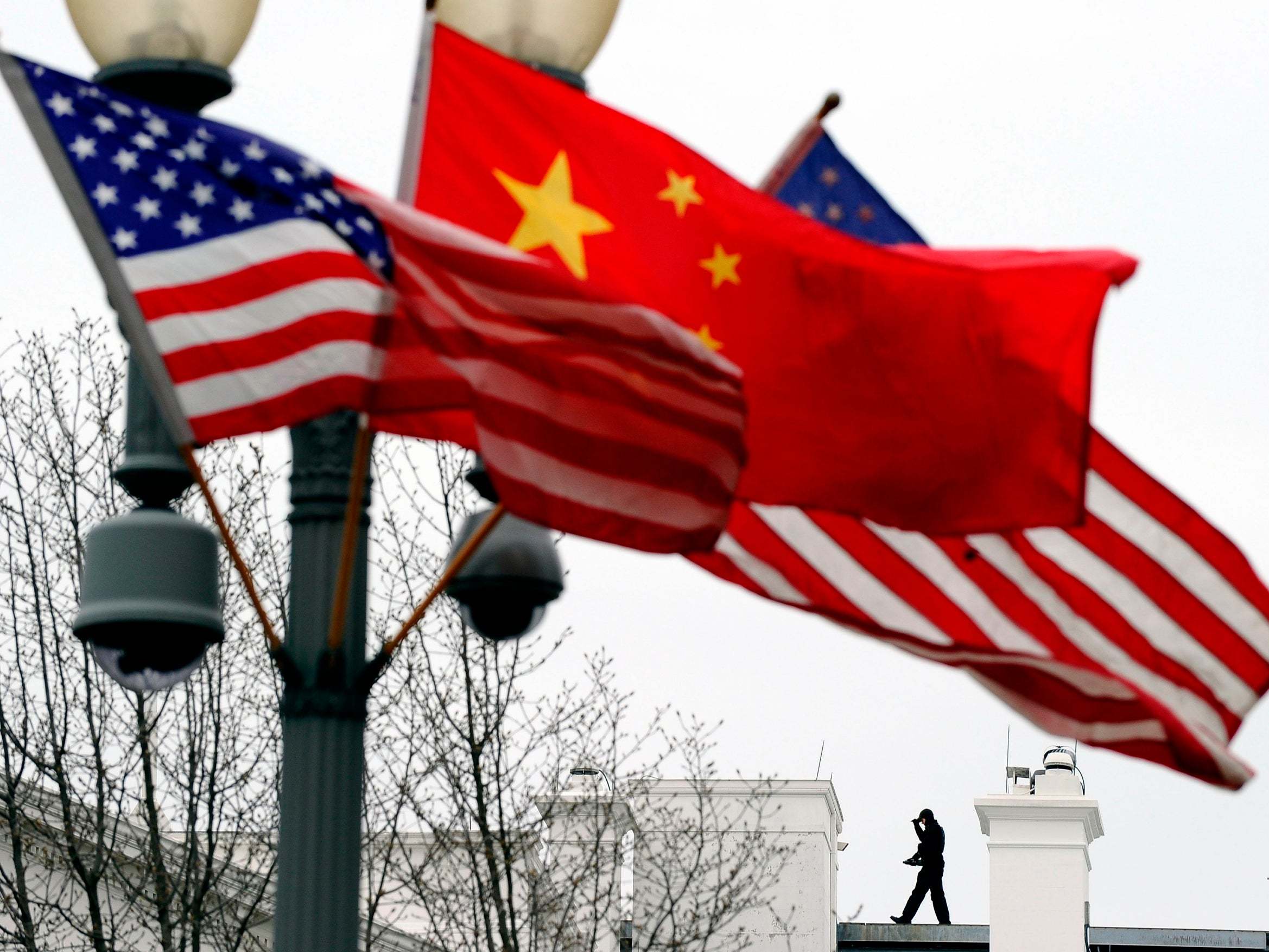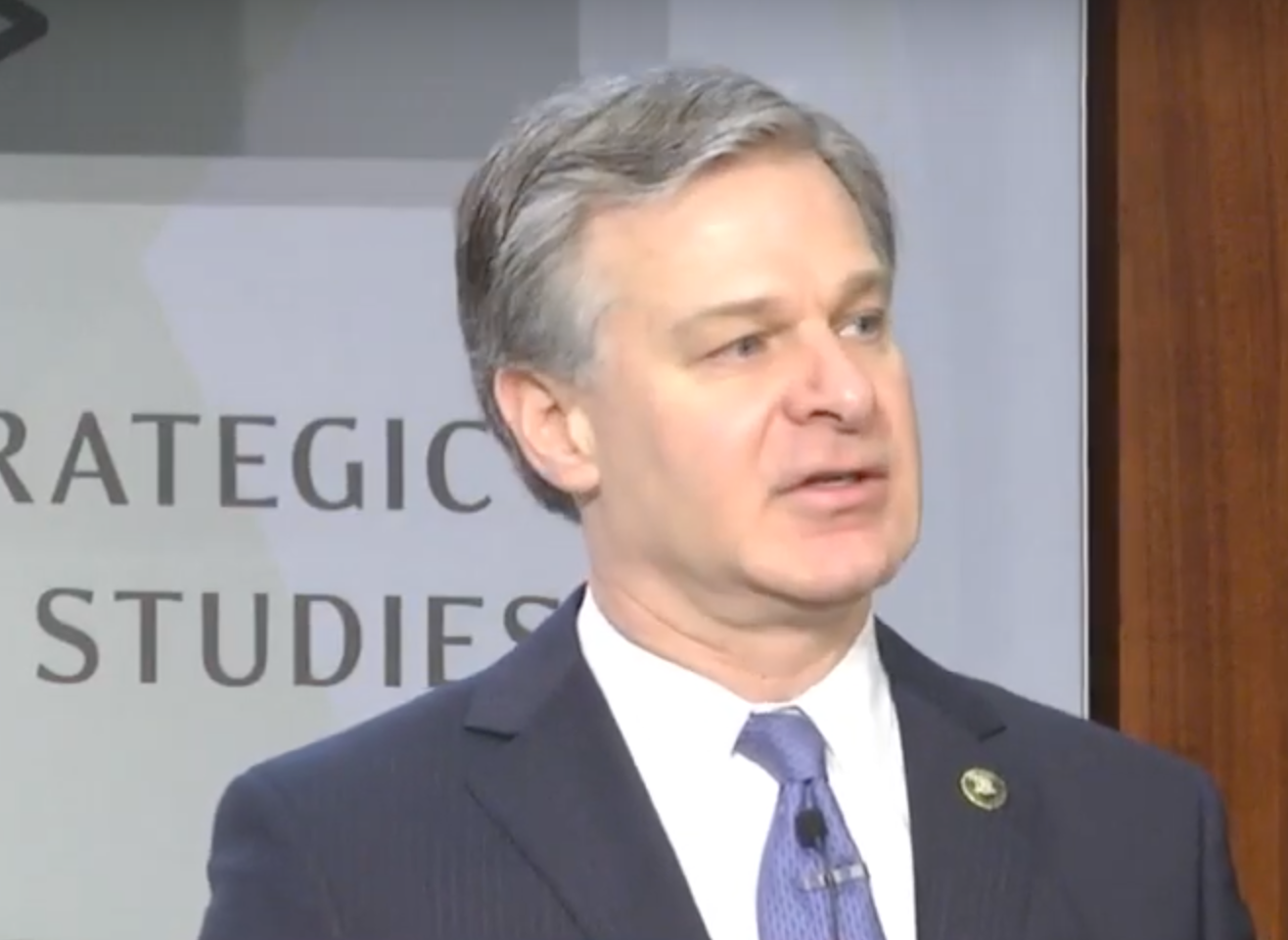China is biggest espionage threat US faces, says FBI chief
The bureau currently has 1,000 investigations open into Chinese technology theft across its 56 regional offices

The FBI has identified China as the biggest law enforcement threat to the United States, and its director said Beijing was seeking to steal American technology by “any means necessary.”
FBI director Christopher Wray told a conference on Thursday the bureau currently had about 1,000 investigations open into Chinese technology theft across its 56 regional offices.
FBI counterintelligence chief John Brown said the bureau arrested 24 people in 2019 in China-related cases and had already arrested 19 people in 2020.
He told the conference at Washington's Centre for Strategic and International Studies (CSIS) that the FBI believed “no country poses a greater threat than Communist China.”
Mr Wray said the threat needed to be dealt with through action across the whole of the US government.
“As I stand here talking with you today, the FBI has about 1,000 investigations involving China's attempted theft of US-based technology in all 56 of our field offices and spanning just about every industry sector,” he said.
Mr Wray added that China was aggressively exploiting US academic openness to steal technology, using “campus proxies” and establishing “institutes on our campuses.”

William Evanina, director of the National Counterintelligence and Security Centre, told the conference that China was placing particular priority on stealing US aircraft and electric vehicle technology.
In advance of Thursday's event, Mr Evanina estimated the theft of American trade secrets by China costs the United States “anywhere from $300 to $600 billion” a year.
The FBI data shows an aggressively stepped-up campaign by US authorities to root out Chinese espionage operations pursuing American secrets. This has snared a growing group of Chinese government officials, business people, and academics.
In 2019 alone, public records show US authorities arrested and expelled two Chinese diplomats who allegedly drove onto a military base in Virginia. They also caught and jailed former CIA and Defence Intelligence Agency officials on espionage charges linked to China.
China's efforts to steal unclassified American technology, ranging from military secrets to medical research, have long been thought to be extensive and aggressive, but US officials only launched a broad effort to stop alleged Chinese espionage in the United States in 2018.
The Chinese embassy in Washington rejected the US allegations as “entirely baseless.”
“The people-to-people exchange between China and the US is conducive to stronger understanding between the two peoples and serves the fundamental interests of our two countries,” it said in an emailed statement.
According to CSIS, of the 137 publicly reported instances of Chinese-linked espionage against the United States since 2000, 73% took place in the last decade,
The CSIS data, which excludes cases of intellectual property litigation and attempts to smuggle munitions or controlled technologies, shows that military and commercial technologies are the most common targets for theft.
In the area of medical research, of 180 investigations into misuse of National Institutes of Health (NIH) funds, diversion of research intellectual property and inappropriate sharing of confidential information, more than 90% of the cases have links to China, according to an NIH spokeswoman.
One main reason Chinese espionage, including extensive hacking in cyberspace, has expanded is that “China depends on Western technology and as licit avenues are closed, they turn to espionage to get access,” said CSIS expert James Lewis.
In late January alone, federal prosecutors in Boston announced three new criminal cases involving industrial spying or stealing, including charges against a Harvard department chair.
Prosecutors said Harvard's Charles Lieber lied to the Pentagon and the NIH about his involvement in the Thousand Talents Plan: a Chinese government programme that offers mainly Chinese scientists working overseas lavish financial incentives to bring their expertise and knowledge back to China. They said he also lied about his affiliation with China's Wuhan University of Technology.
During at least part of the time he was signed up with the Chinese university, Lieber was also a “principal investigator” working on at least six research projects funded by US Defence Department agencies, court documents show.
A lawyer for Lieber did not respond to a request for comment.
REUTERS
Join our commenting forum
Join thought-provoking conversations, follow other Independent readers and see their replies
Comments
Bookmark popover
Removed from bookmarks